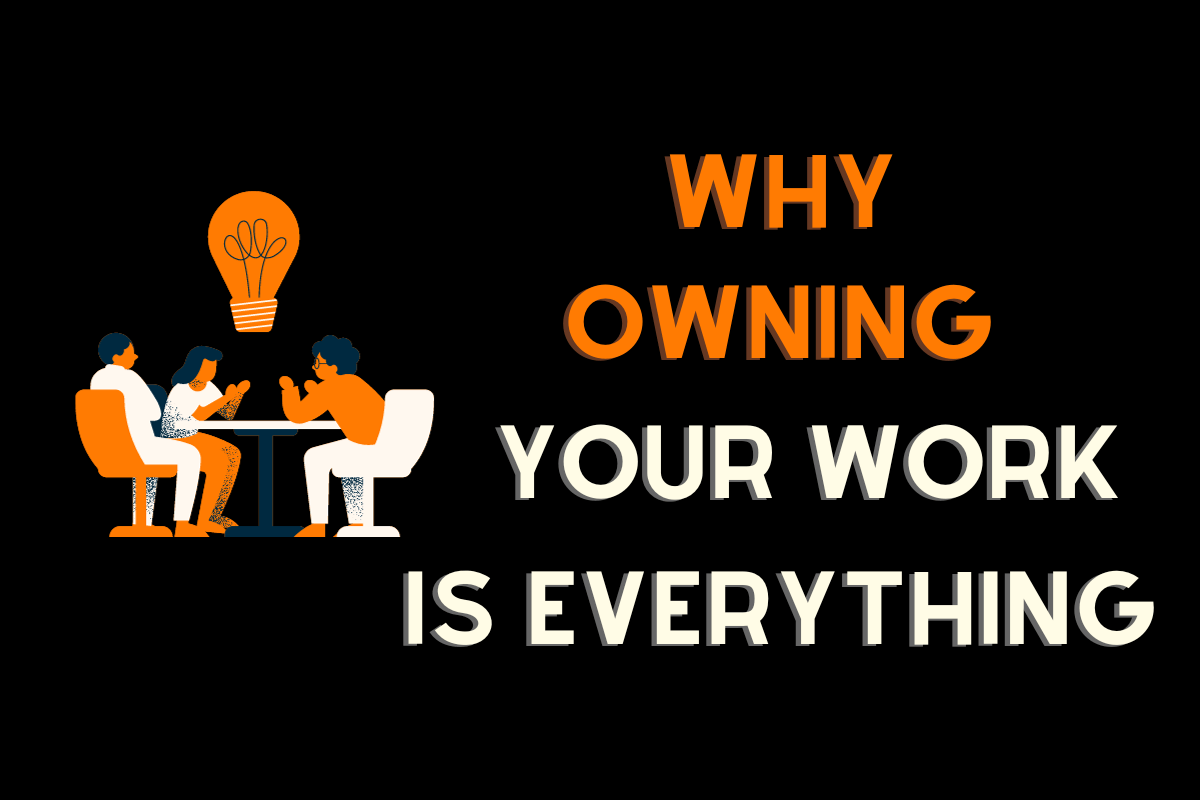Taking ownership of work at work is a crucial aspect of professional growth and success. Rather than being disengaged, it puts you in the moment sharing your skills with others and being an active part of your team and society at large. It involves assuming responsibility for your tasks, projects, and outcomes, and it goes beyond simply doing what is expected of you.
To sum up, the taking ownership of work meaning can be described as follows:
Key aspects of owning your work

Accountability
When you take ownership of your work, you demonstrate accountability. You are responsible for the quality and completion of your tasks. This accountability builds trust with your colleagues and supervisors, as they know they can rely on you.
Professional Growth
Taking ownership provides opportunities for learning and development. When you take charge of a project or task, you often need to acquire new skills, seek solutions, and adapt to challenges. This continuous learning can lead to personal and professional growth.
Initiative
Employees who take ownership are proactive. They don’t wait for instructions or micromanagement; instead, they identify problems, suggest improvements, and take action to drive positive change within their teams or organizations.
Motivation
Ownership can be a significant motivator. When you feel a sense of ownership over your work, you are more likely to be engaged, enthusiastic, and invested in your tasks. This can lead to increased job satisfaction and overall happiness at work.
Leadership Skills
Taking ownership is a key trait of effective leaders. It sets an example for others to follow and can inspire colleagues to also take ownership of their responsibilities. As you demonstrate leadership qualities, you become a more valuable asset to your organization.
Problem Solving
Ownership often involves addressing challenges and solving problems. When you take ownership, you become skilled at identifying issues and finding creative solutions. This can improve your problem-solving abilities, which are valuable in any role.
Innovation
Employees who take ownership are more likely to think outside the box and come up with innovative ideas. They are not constrained by the status quo and are willing to take risks to achieve better results.
Positive Reputation
Taking ownership can enhance your professional reputation. Colleagues and superiors are more likely to view you as a reliable, responsible, and valuable team member, which can open doors to new opportunities within your organization or industry.
Team Collaboration
When individuals take ownership within a team, it can foster a culture of collaboration and mutual support. Team members are more likely to trust each other and work cohesively when they know that everyone is committed to their tasks and responsibilities.
Organizational Success
Ultimately, a workplace where employees take ownership is more likely to be successful. When everyone is accountable and motivated to perform at their best, it contributes to the organization’s overall success and competitiveness.
The taking ownership definition is something that can be applied to every area of our lives, but is especially to give our work meaning.
Taking ownership at work is not only beneficial for personal and professional development but also for the success of the organization as a whole. It leads to improved teamwork, increased innovation, and a more positive workplace culture. Embracing ownership is a valuable mindset that can lead to long-term career success and fulfillment.
How to take on an ownership mindset

“Love not fear” is the concept that we should approach everything we do from a place of love rather than fear. So many people get caught up in the woes of daily life and treat their work as a place to satisfy their fears, such as paying their mortgage. But if they approach their work with love and for the sake of providing value they are in essence taking on an ownership mindset.
Applying the “Love not Fear” concept is an effective way to instantaneously transform your experience from night to day.
Having a set of core values and a defined vision and mission for your professional and personal life and living aligned with them is a surefire way to embrace ownership of work. Regularly recalling these assets and using them as your North Star will give direction to every action you take, including giving your work a greater purpose.
An ownership mindset means viewing your work as if it were your own business. It means setting goals and taking pride in delivering high-quality results. It means embracing challenges as lessons to be learned from and an opportunity to fine-tune.
An ownership mindset also means giving from oneself through seeking out opportunities to contribute and make improvements without being prompted.Taking ownership also equates to continuous learning by embracing a willingness to learn and adapt, acquiring new skills, seeking feedback, and being open to self-improvement.
Lastly, an ownership mindset opens the channels for communicating progress, challenges, and successes with others and provides opportunities to discover ways to be of further benefit, which are social exchanges that mark some of the best moments in life.
Taking ownership also allows you to celebrate your achievements, and you can start right now by finding ways to help others, being proactive on tasks and projects, time blocking to plan for your goals, revisiting your vision, mission and values and being grateful for all the good in your life and of course making sure all of your actions are done with the feeling of love not fear.



